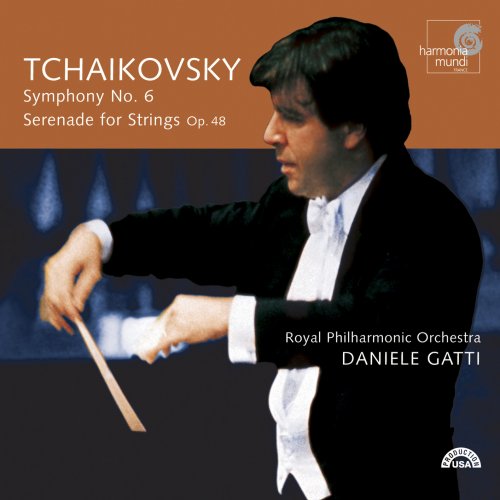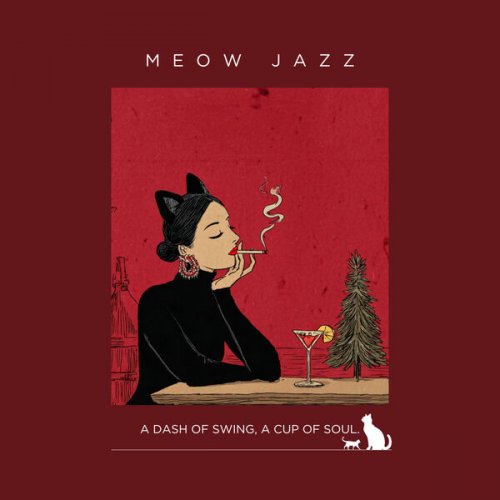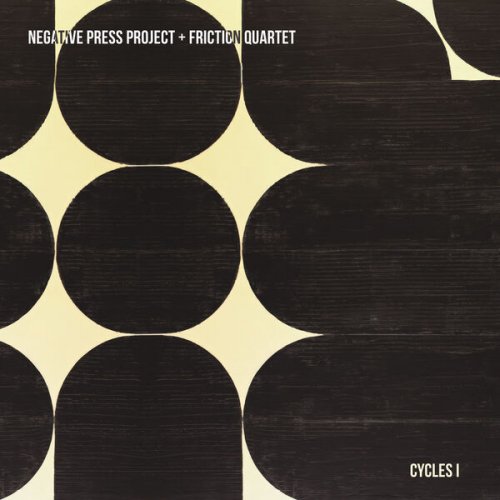Daniele Gatti - Tchaikovsky: Symphony No. 6 "Pathetique"; Serenade for Strings, Op. 48 (2006) [SACD]

Artist: Royal Philharmonic Orchestra & Daniele Gatti
Title: Tchaikovsky: Symphony No. 6 "Pathetique"; Serenade for Strings, Op. 48
Year Of Release: 2006
Label: Harmonia Mundi
Genre: Classical
Quality: DST64 image (*.iso) 2.0 / 5.0
Total Time: 01:16:24
Total Size: 4.06 GB (scans)
WebSite: Album Preview
Tracklist:Title: Tchaikovsky: Symphony No. 6 "Pathetique"; Serenade for Strings, Op. 48
Year Of Release: 2006
Label: Harmonia Mundi
Genre: Classical
Quality: DST64 image (*.iso) 2.0 / 5.0
Total Time: 01:16:24
Total Size: 4.06 GB (scans)
WebSite: Album Preview
Pyotr Ilyich Tchaikovsky (1840 - 1893)
Symphony No. 6 in B minor ("Pathetique"), Op. 74
1. I. Adagio - Allegro non troppo
2. II. Allegro con grazia
3. III. Allegro molto vivace
4. IV. Finale: Adagio lamentoso
Serenade for strings (or piano, 4 hands) in C major, Op. 48
5. I. Pezzo in forma di Sonatina
6. II. Walzer
7. III. Elegie
8. IV. Finale: Tema Russo
The conflict between public persona and private feelings was never more deeply felt than by Tchaikovsky in his life’s final years, and never expressed with greater poignancy than in the Pathétique Symphony. Or so we’ve been led to believe. (For a variety of interpretations, see Tchaikovsky: A Self-Portrait, by Vladimir Volkoff, p. 322ff, Robert Hale & Co., London, 1985.)
“Tchaikovsky Agonistes,” a composer tormented by his homosexuality, is a 20thcentury invention. While not without concerns about his emotional peace of mind – and who can say otherwise ? – the composer’s personal predilections were neither flaunted nor hidden. If homosexuality was not embraced by Imperial Russia, it was tolerated both by members of the Romanov Court and the musical establishment.
Outwardly, Tchaikovsky’s last years were triumphant. In 1892, the Académie Française elected him a member and Cambridge University chose him to receive an honorary Doctorate of Music. His works were performed throughout the Continent, and his career as guest conductor was flourishing, with engagements booked into May of 1894. Most important, perhaps, he continued to compose prolifically. For the Mariinsky stage he created Pique Dame in 1890, Iolanta in 1891, and The Nutcracker in 1892, and his orchestral scores included the symphonic ballad Voyevoda in 1890-91 and the Pathétique Symphony in 1893, his last completed work.
For the Pathétique and its surrounding mystique, Tchaikovsky himself set the stage. While planning it, he wrote to Vladimir ‘Bob’ Davydov, his nephew and lover and the Symphony’s dedicatee: “During my stay in Paris last December I had the idea of writing a program symphony; but to a program that should remain an enigma for everyone but myself; let them try and guess it! For my part, I intend to call it simply ‘Program Symphony.’ The theme of it is full of subjective feeling, so much so that as I was mentally composing it during the journey, I frequently shed tears…”
“Gatti's Pathétique certainly has a mind of its own, but he justifies everything he does, backed up to the hilt by world-class orchestral playing… Gatti has an eagle eye for details and dynamics. A brisk and genuinely joyous waltz… The march, too, is fast but not impersonal, and only at the heart of the Adagio lamentoso does Gatti broaden uncharacteristically; again, the tonal opulence informs an overwhelming climax.” (BBC Music Magazine)
“…the performance is magnetic; Gatti has the full measure of Tchaikovsky's white-heat inspiration. The flexible rubato that Gatti favours in the Adagio finale sounds totally natural and spontaneous, though as with the second subject of the first movement he has an extended pause before the big melody enters, tender as well as emotional. If my final preference is still for Janson's... at more flowing speeds, Gatti and the RPO hold a trump card in their exceptionally generous coupling, a warmly persuasive reading of the Serenade for Strings, which builds on the ripe resonance of the RPO string section, again with clear textures and articulation and a wide dynamic range.” (Gramophone Magazine)
Royal Philharmonic Orchestra
Daniele Gatti, conductor
“Tchaikovsky Agonistes,” a composer tormented by his homosexuality, is a 20thcentury invention. While not without concerns about his emotional peace of mind – and who can say otherwise ? – the composer’s personal predilections were neither flaunted nor hidden. If homosexuality was not embraced by Imperial Russia, it was tolerated both by members of the Romanov Court and the musical establishment.
Outwardly, Tchaikovsky’s last years were triumphant. In 1892, the Académie Française elected him a member and Cambridge University chose him to receive an honorary Doctorate of Music. His works were performed throughout the Continent, and his career as guest conductor was flourishing, with engagements booked into May of 1894. Most important, perhaps, he continued to compose prolifically. For the Mariinsky stage he created Pique Dame in 1890, Iolanta in 1891, and The Nutcracker in 1892, and his orchestral scores included the symphonic ballad Voyevoda in 1890-91 and the Pathétique Symphony in 1893, his last completed work.
For the Pathétique and its surrounding mystique, Tchaikovsky himself set the stage. While planning it, he wrote to Vladimir ‘Bob’ Davydov, his nephew and lover and the Symphony’s dedicatee: “During my stay in Paris last December I had the idea of writing a program symphony; but to a program that should remain an enigma for everyone but myself; let them try and guess it! For my part, I intend to call it simply ‘Program Symphony.’ The theme of it is full of subjective feeling, so much so that as I was mentally composing it during the journey, I frequently shed tears…”
“Gatti's Pathétique certainly has a mind of its own, but he justifies everything he does, backed up to the hilt by world-class orchestral playing… Gatti has an eagle eye for details and dynamics. A brisk and genuinely joyous waltz… The march, too, is fast but not impersonal, and only at the heart of the Adagio lamentoso does Gatti broaden uncharacteristically; again, the tonal opulence informs an overwhelming climax.” (BBC Music Magazine)
“…the performance is magnetic; Gatti has the full measure of Tchaikovsky's white-heat inspiration. The flexible rubato that Gatti favours in the Adagio finale sounds totally natural and spontaneous, though as with the second subject of the first movement he has an extended pause before the big melody enters, tender as well as emotional. If my final preference is still for Janson's... at more flowing speeds, Gatti and the RPO hold a trump card in their exceptionally generous coupling, a warmly persuasive reading of the Serenade for Strings, which builds on the ripe resonance of the RPO string section, again with clear textures and articulation and a wide dynamic range.” (Gramophone Magazine)
Royal Philharmonic Orchestra
Daniele Gatti, conductor




![Basement Membrane & Luka Topuria - Good Morning Neighbours (2026) [Hi-Res] Basement Membrane & Luka Topuria - Good Morning Neighbours (2026) [Hi-Res]](https://www.dibpic.com/uploads/posts/2026-01/1769589674_cmglweag8dndh_600.jpg)

![Vincent Segal & Roberto Fonseca - Nuit parisienne à La Havane (2026) [Hi-Res] Vincent Segal & Roberto Fonseca - Nuit parisienne à La Havane (2026) [Hi-Res]](https://www.dibpic.com/uploads/posts/2026-01/1769526917_folder.jpg)
![Sonny Troupé, Quartet Add 4 - Evy Danse (2026) [Hi-Res] Sonny Troupé, Quartet Add 4 - Evy Danse (2026) [Hi-Res]](https://img.israbox.com/img/2026-01/30/fa6yenl6eyb4rihkm8igoia1l.jpg)
![Juan Antonio Moya - Idílico (2023) [Hi-Res] Juan Antonio Moya - Idílico (2023) [Hi-Res]](https://img.israbox.com/img/2026-01/27/zy1f9ot4ipmlb5oh0tb73tlej.jpg)